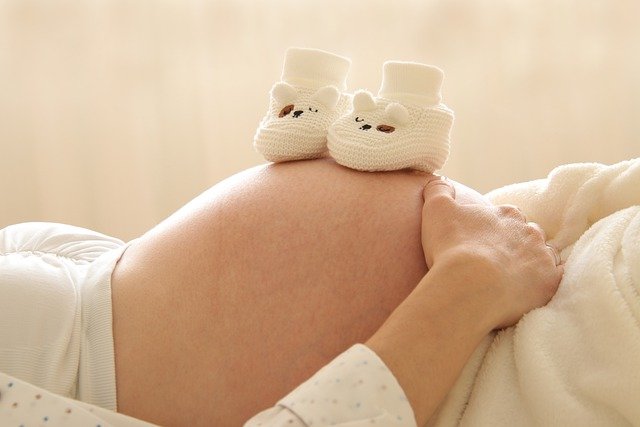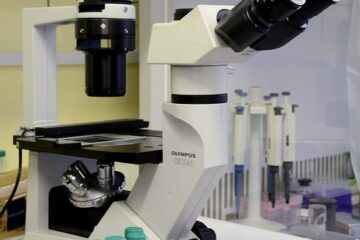IVF is one of the most common assisted reproduction technology used as fertility treatment. The success rate is an important factor in decision-making. Therefore, every year, IVF centers reported their success rate to the country-specific health and reproductive authority.

The IVF success rate is calculated by comparing the number of procedures conducted or embryo transfers with the number of live birth per year. Patients who want to opt for IVF treatment are more interested to know the live birth rate so that they also get the motivation to perform IVF cycle and take home their baby after completion of the IVF cycle.
In the IVF procedure, an egg is retrieved from the mother’s or donor’s ovaries. Then in a specialized laboratory setup, obtained egg need to fertilize with sperm collected from a male partner or donor. After 3 to 5 days, the created embryo is transferred into the mother’s womb.
If you are thinking to opt for in-vitro fertilization (IVF) to conceive a baby, then the details of the following factors need to know for promoting IVF success rate.
Age factor
Your age is one of the most important consideration factors for a successful IVF process.
Diminished ovarian reserve
The IVF treatment at a younger age before 35 years has increased the IVF success rate by using the own egg of the patient, as during this age the sufficient eggs are released from the ovary. But an egg donor requires for the IVF process after 40 years of age. Numeric data gives a more expressive illustration. IVF success rate is 40% under 35 years of age, whereas it drops to 4% at the age of 42 years.
Prior pregnancy factor
Previous pregnancy history including the partner details is an important factor for IVF success rate. Subsequent pregnancy with the same partner increases the IVF success rate. Unsuccessful pregnancy like recurrent miscarriage history may decrease the IVF success rate. In addition, trying pregnancy with different partners also reduces the IVF success rate.
Nature of fertility issue factor
Certain fertility problems like uterine abnormalities, fibroid tumors, utero contact with Diethylstilbestrol are diminishing IVF success rates. In addition, hormonal problems like excessive follicle-stimulating hormonal release reduce ovarian reserve. Lack of sufficient egg release from the ovary reduces the IVF success rate. A high dose of ovulation stimulation drugs may be prescribed to increase the egg release for improving the IVF success rate. In case of both partners have an infertile issue for a longer period can reduce the IVF success rate
Using the Donor egg factor
Fertility experts usually recommended donor egg assistance in the IVF process, when your age is exceeding 35 years to 40 years to increase the IVF success rate. Quality and sufficient egg both are important factors for healthy baby birth. Usually, egg donors have younger age with a medically screened for egg donation purpose increase the chances of pregnancy for women who have already exceed 40 years of age. The scientific report already provided evidence that using fresh donor egg or embryo transfer increased 55% IVF success rate.
Lifestyle factor
A healthy lifestyle is very important to become pregnant and also increases the IVF success rate. The habit of smoking hinders pregnancy. Fertility experts often advise stopping smoking at least three months before the IVF treatment commencement. Following are certain lifestyle issues that cause difficulty in IVF success:
- Smokers require a high dose of ovarian stimulating hormone require for sufficient egg release
- Implantation rate is reduced with a smoking habit
- Smokers usually require at least two IVF attempt to get a successful result
- Unsuccessful IVF cycle is common with smokers.
Obesity is one of the major causes of repeated miscarriage and also increases infertility risk. Obesity also hinders the IVF success rate. However, underweight women also have a higher risk of IVF failure. Therefore, weight management is one of the most important lifestyle factors for improving the IVF success rate.
Facilities available in a fertility clinic
The selection of a fertility clinic for conducting the IVF process has a great impact on the success rate of IVF treatment. Following are some points you need to review before you select any IVF center for fertility treatment.
- The expertise of IVF staff working in the fertility clinic
- The experience and training details of IVF experts who conduct the IVF process
- The live birth rate of the particular IVF clinic.
- The rate of multiple pregnancy history of the fertility clinic.
- Detail information about the laboratory facility and other important infrastructure.
- Laboratory staff qualification and experience details.
- The excellence of the clinic by evaluating the patient history, their age group, fertility issues successfully treated before.
- Some clinics are specifically expertise in specialized fertility problem treatments, so a detailed knowledge of fertility clinics is very important to successful IVF treatment.
If you are planning to treat your infertility by opting for IVF, then do your research and take all the necessary details for a successful IVF cycle. The detailed knowledge helps you to get advanced treatment and build a family by allowing you to become pregnant.
A new study report published in June 2019 in The Independent, a web magazine stated that one in four women become pregnant after completion of IVF cycle and that is the peak level success rate in women who have undergone IVF treatment. According to the clinicians, the highest IVF success rate is 27.1%. (Mathematical value) till now.
Reference


